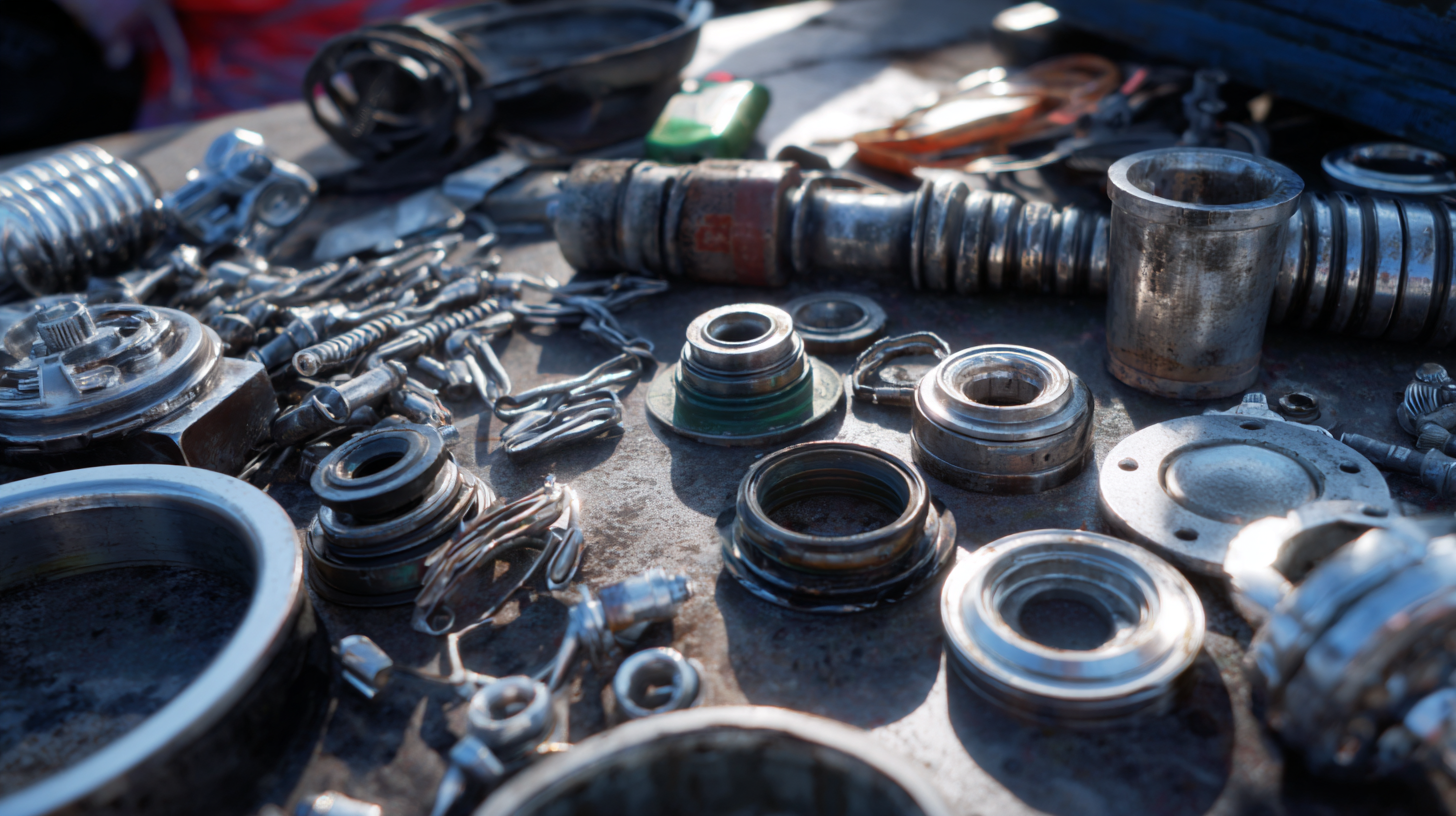Leave Your Message
-
Phone
-
E-mail
In today's automotive landscape, the demand for high-quality replacement components is at an all-time high, with the global aftermarket auto parts market expected to reach $1 trillion by 2025, according to a recent Market Research Future report. As vehicle owners increasingly seek cost-effective solutions, the appeal of other auto parts, including alternative brands and remanufactured components, has surged. These alternatives can provide comparable performance and reliability to original equipment manufacturer (OEM) parts at a fraction of the cost, making informed choices essential for both safety and budget. This ultimate guide will navigate you through the best practices for comparing alternative auto parts to ensure your vehicle runs smoothly while optimizing your expenditures.

When it comes to maintaining your vehicle, understanding your specific needs is crucial in choosing the best alternative auto parts. A comprehensive overview of your vehicle can help you decide between original equipment manufacturer (OEM) parts and aftermarket options. According to a report by the Specialty Equipment Market Association (SEMA), the aftermarket auto parts industry is projected to reach over $500 billion by 2025, underscoring the vast selection available to consumers. This growing market means that you can find parts tailored to enhance performance, longevity, and efficiency, aligning perfectly with your vehicle's requirements.

Moreover, recent studies have highlighted that nearly 70% of vehicle owners do not fully understand the performance specifications of their cars, which can lead to misinformed purchase decisions. In a survey conducted by the Automotive Aftermarket Suppliers Association (AASA), it was revealed that 58% of consumers value affordability over quality, potentially resulting in subpar choices. Taking the time to research and evaluate what specific parts your vehicle truly needs, whether it's a high-performance brake pad or a fuel-efficient air filter, can dramatically improve not just the lifespan of your vehicle, but also your driving experience. Engaging with expert reviews and industry reports can further equip you to make informed decisions tailored to your unique vehicle needs.
When it comes to choosing alternative auto parts, quality evaluation is paramount. Alternative parts can vary significantly in terms of performance and durability, so understanding how to assess quality is crucial for any vehicle owner. Start by examining the materials used in the parts. High-quality alternatives often utilize robust materials that ensure longevity and reliability. Researching the manufacturer’s reputation can also provide insights; established manufacturers typically have a track record of quality control and customer satisfaction.
Additionally, checking for certifications can help determine the credibility of the auto parts. Parts that meet industry standards or have undergone rigorous testing are generally safer bets for your vehicle. Reading customer reviews can offer firsthand accounts of the parts’ performance and fitment, further guiding your decision. Taking the time to compare specifications and customer feedback will ultimately lead to smarter choices when outfitting your vehicle with alternative auto parts, ensuring that you don’t compromise on quality.
| Part Type | Quality Rating (1-10) | Material Quality | Warranty Period | Price (USD) |
|---|---|---|---|---|
| Brake Pads | 9 | Ceramic | 3 Years | 60 |
| Oil Filter | 8 | Synthetic Fiber | 1 Year | 15 |
| Alternator | 7 | Aluminum | 2 Years | 150 |
| Starter Motor | 8 | Copper | 1.5 Years | 120 |
| Battery | 10 | Lead Acid | 5 Years | 100 |
When it comes to maintaining your vehicle, opting for alternative auto parts can be a cost-effective solution without compromising performance. According to a report by the Automotive Aftermarket Industry Association, the aftermarket parts segment is expected to grow to $430 billion by 2026, indicating a strong shift towards alternative options among consumers. This growing trend emphasizes the importance of selecting reliable brands to ensure quality and longevity for your vehicle.
In our exploration of the top 10 brands for reliable alternative auto parts, names like ACDelco, Duralast, and Bosch consistently rank high. ACDelco, for instance, boasts extensive testing and quality assurance processes, which can generate confidence in their products among car owners. Meanwhile, Bosch, known for its innovative technology, reported that their brake pads outperform OEM standards in terms of stopping power and durability, making them a sound choice for those prioritizing safety and performance. This emphasis on brand reliability is crucial, as the importance of high-quality parts cannot be underestimated, especially with the statistic that poor-quality auto parts are responsible for up to 55% of all repair issues according to a study by the Car Care Council.

When it comes to servicing your vehicle, the decision between cost and quality can be daunting. A report from the Specialty Equipment Market Association (SEMA) indicates that the demand for alternative auto parts has surged, with a projected market growth from $14 billion in 2020 to an estimated $22 billion by 2026. This indicates not only an increasing preference among consumers for alternative options but also highlights the necessity of balancing cost with quality to ensure optimal performance and longevity of vehicle components.
It's essential to recognize that lower-cost alternatives can sometimes compromise quality, leading to higher long-term expenses due to increased maintenance and replacements. According to a study by the Automotive Aftermarket Industry Association (AAIA), vehicles maintained with high-quality parts can last up to 30% longer than those using budget alternatives. Therefore, while the initial investment may be higher, opting for premium auto parts is often more economical in the long run, providing better safety, reliability, and overall vehicle performance. By prioritizing quality over mere cost, vehicle owners can achieve the best value and enhance their driving experience.
When it comes to installing alternative auto parts, one of the first decisions you need to make is whether to tackle the project yourself or hire a professional. DIY installations can be rewarding, especially if you have some mechanical knowledge and access to the right tools. However, it’s essential to consider the complexity of the job. For straightforward replacements, such as changing filters or brake pads, many car owners find success with DIY methods. Always consult the vehicle’s manual for guidance and ensure you have a proper workspace.
On the other hand, opting for professional help can save you time and potential headaches. Mechanics have the expertise to handle complicated installations and ensure everything is done to industry standards. If you're not confident in your skills or if the parts require specialized tools, it's wise to leave it to the experts. Check with local garages for competitive pricing and make sure they use quality alternative parts that align with your vehicle’s specifications.
**Tips:**
- If you decide to go the DIY route, invest in a high-quality repair manual specific to your vehicle to avoid mistakes.
- Always compare quotes from multiple professionals before making a decision, and inquire about warranties on both the parts and the labor to protect your investment.
